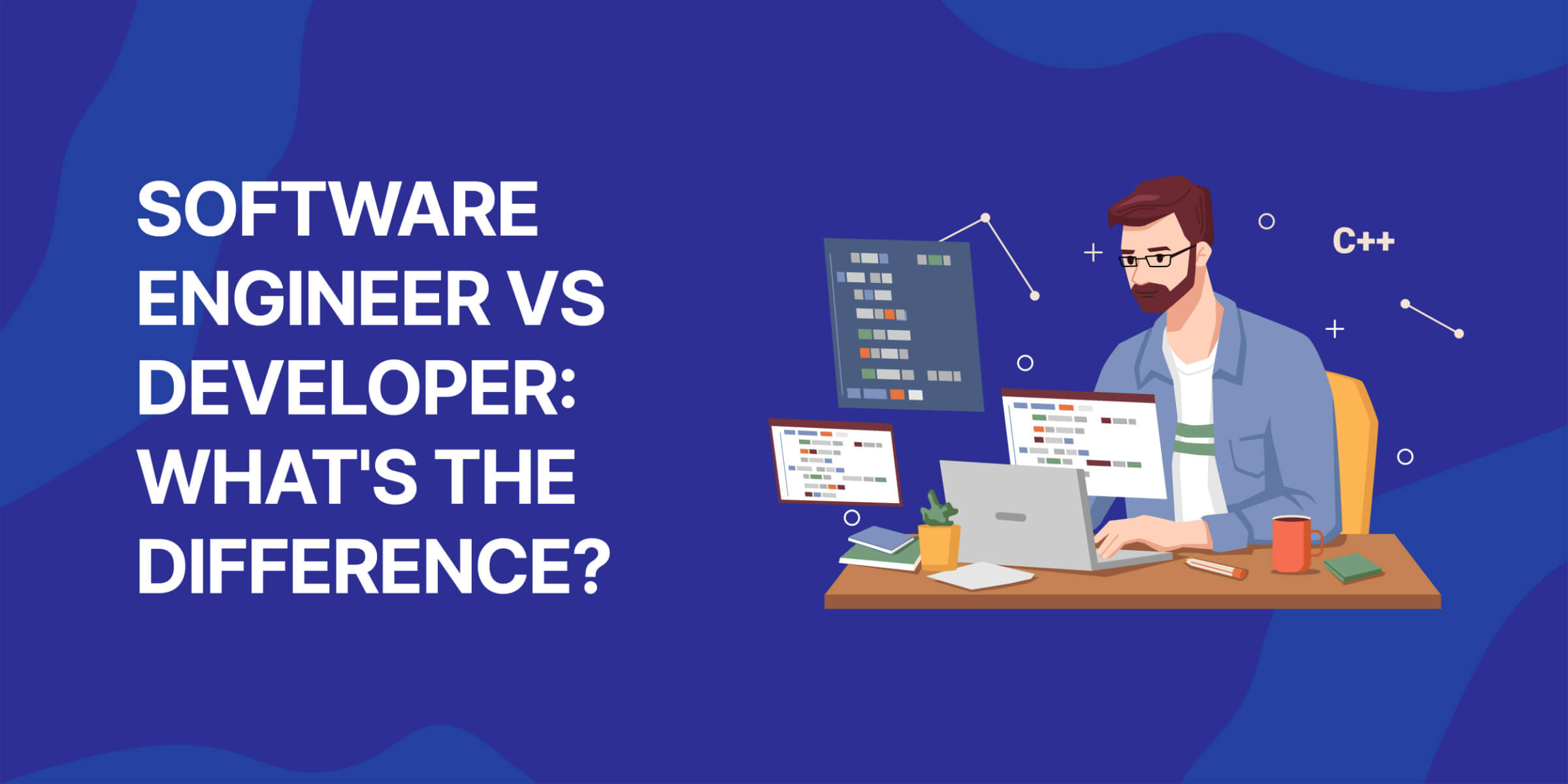Looking to hire for a tech role but unsure whether you need a software engineer or a software developer? It's a common dilemma faced by many businesses. So, what sets them apart?
Simply put, a software engineer oversees system design, ensuring everything runs smoothly, while a software developer is the craftsman behind the code.
Understanding this distinction can be pivotal for your business's success. Dive in as we help you make an informed decision.
Table of Contents
- Why are “Software Engineer” and “Software Developer” Used Interchangeably?
- What’s a Software Engineer?
- What’s a Software Developer?
- What is the Difference Between Software Developers and Engineers?
- Roles of a Software Developer vs. Software Engineer
- The Best Place to Find a Software Engineer or Software Developer
- Frequently Asked Questions
We offer this website completely free to our visitors. To help pay the bills, we’ll often (but not always) set up affiliate relationships with the top providers after selecting our favorites. However, we do our best not to let this impact our choices. There are plenty of high-paying companies we’ve turned down because we didn’t like their product.
An added benefit of our relationships is that we always try to negotiate exclusive discounts for our visitors.
Why We Like Toptal
Why are “Software Engineer” and “Software Developer” Used Interchangeably?
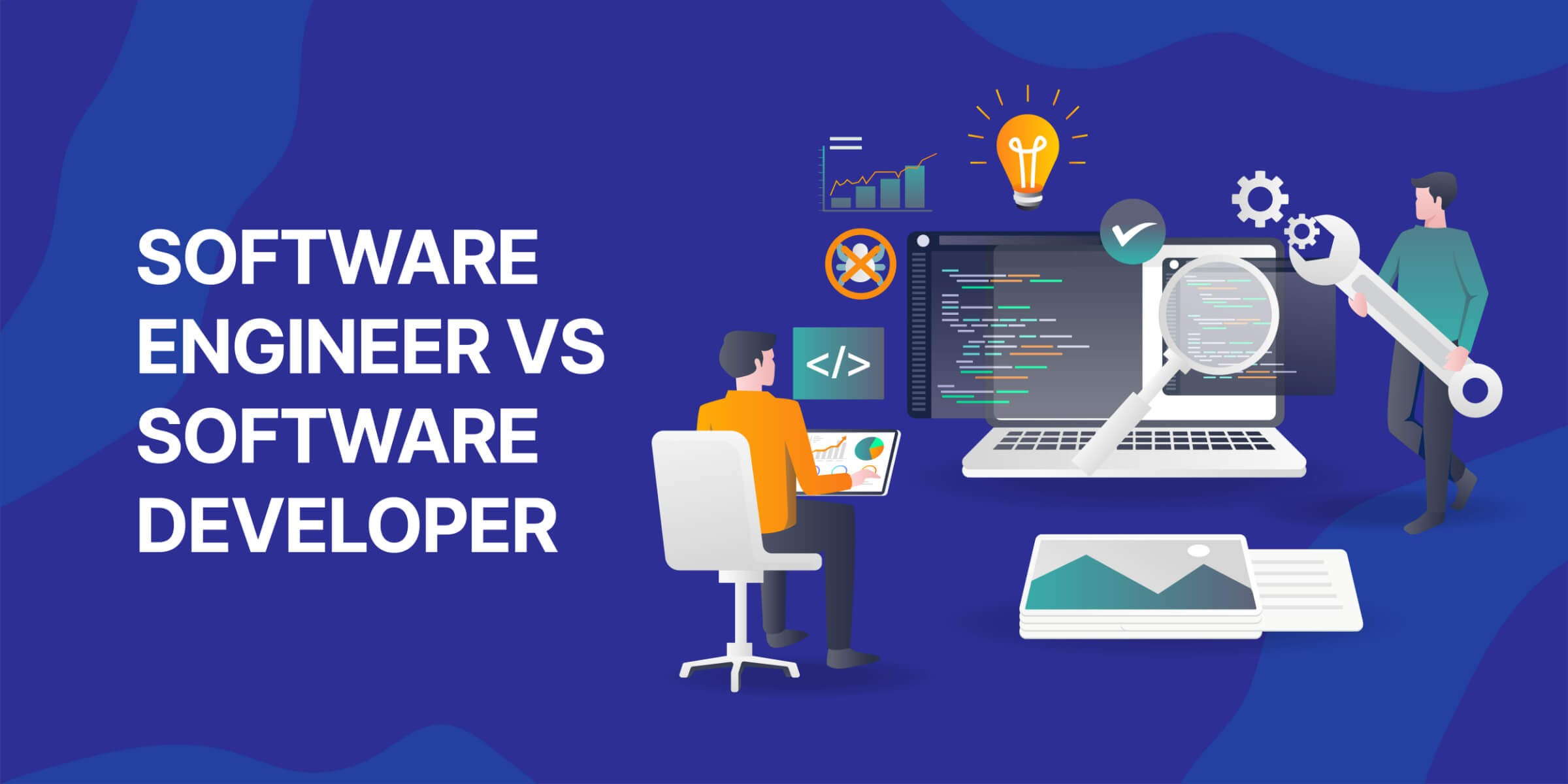

It’s common to hear “software developer” and “software engineer” used interchangeably. There are some differences in each role that we’ll dive into shortly, but a software developer is a subset of software engineering. Even professionals in the field understand that companies seeking to employ may use the terms this way.
Therefore, even if you’re looking for a software developer, it may help to include the keyword “software engineer” in the job description. Just be sure to define the scope of work, background, and responsibilities you’re seeking.
What’s a Software Engineer?


Software engineers leverage the principles of engineering to create new programs and applications. They solve complex problems, create efficient algorithms, and develop software solutions that meet clients' needs.
Software Engineer Responsibilities
Key responsibilities of a software engineer include:
- System Analysis and Design: Software engineers are responsible for analyzing user needs and designing software solutions that meet those requirements. This includes defining software architecture, system interfaces, and user interaction methodologies.
- Coding and Programming: They write, test, and implement code to build software applications, utilizing various programming languages and following best practices to ensure optimal performance and reliability.
- Project Management: Software engineers often take on a higher-level role in project management, overseeing the entire development process from planning to implementation to maintenance, and coordinating the work of multiple developers to ensure project success.
- Risk Assessment: Software engineers must identify, analyze, and manage risks that might affect the project or software quality. They must suggest mitigation strategies to avoid or deal with problems.
- Integration: They are responsible for integrating different software components and ensuring that they work together cohesively. Developers may focus more on creating those individual components.
- Validation and Verification: Engineers play a critical role in ensuring that the software meets all the specified requirements (verification) and fulfills its intended purpose (validation). They employ various methods to evaluate software quality and functionality.
- Cost Estimation and Budget Management: Software engineers may estimate the costs associated with a project and manage the budget. They ensure that the project's financial resources are used efficiently.
- Client Interaction: Engaging with clients to understand their needs and constraints and translating those into technical requirements is a core responsibility in this role.
Software Engineer Skills & Education
Come of the most important skills a software engineer needs include:
- Programming Language Mastery: Engineers should have comprehensive knowledge of numerous programming languages to navigate different software projects effectively.
- Engineering Principles for Software Creation: Engineers need to leverage engineering concepts and principles in software design and development. These principles include testability, integrity, and eternal integration.
- Leadership Skills: Software engineers must be able to effectively lead development teams and manage projects.
- Advanced Mathematics: Proficiency in advanced mathematics is crucial for solving complex problems and developing efficient algorithms.
- Develop Scalable, Domain-Specific Solutions: They must be able to develop adaptable domain-specific languages and pipelines to cater to specialized requirements.
Software Engineer Average Salary & Career Growth
Software engineering is a lucrative career, with a salary ranging between $80,000 and $140,000 per year in the United States. The career has plenty of demand, which offers workers with several options for advancement.
Engineers may progress to senior or lead roles, specialize in a certain area, or transition to a managerial position. However, successful software engineers must devote themselves to continual learning and integrate evolving technologies.
Software Engineer Example & Use Case
A company should hire a software engineer when it undertakes a large-scale project requiring the development of a comprehensive software solution. One example would be to create an enterprise-level application used by the entire organization rather than individual users.
Let’s imagine that a marketing agency wanted to create custom software for managing client requests, ongoing internal and external projects, and more all in one place. They determine that existing task management solutions won’t work for all of their needs.
In this case, they would need the help of a software engineer’s skills and expertise for this enterprise application. The engineer’s broad skill set, encompassing system design, project management, and analytical skills, is crucial in navigating the complexities of the project.
What’s a Software Developer?
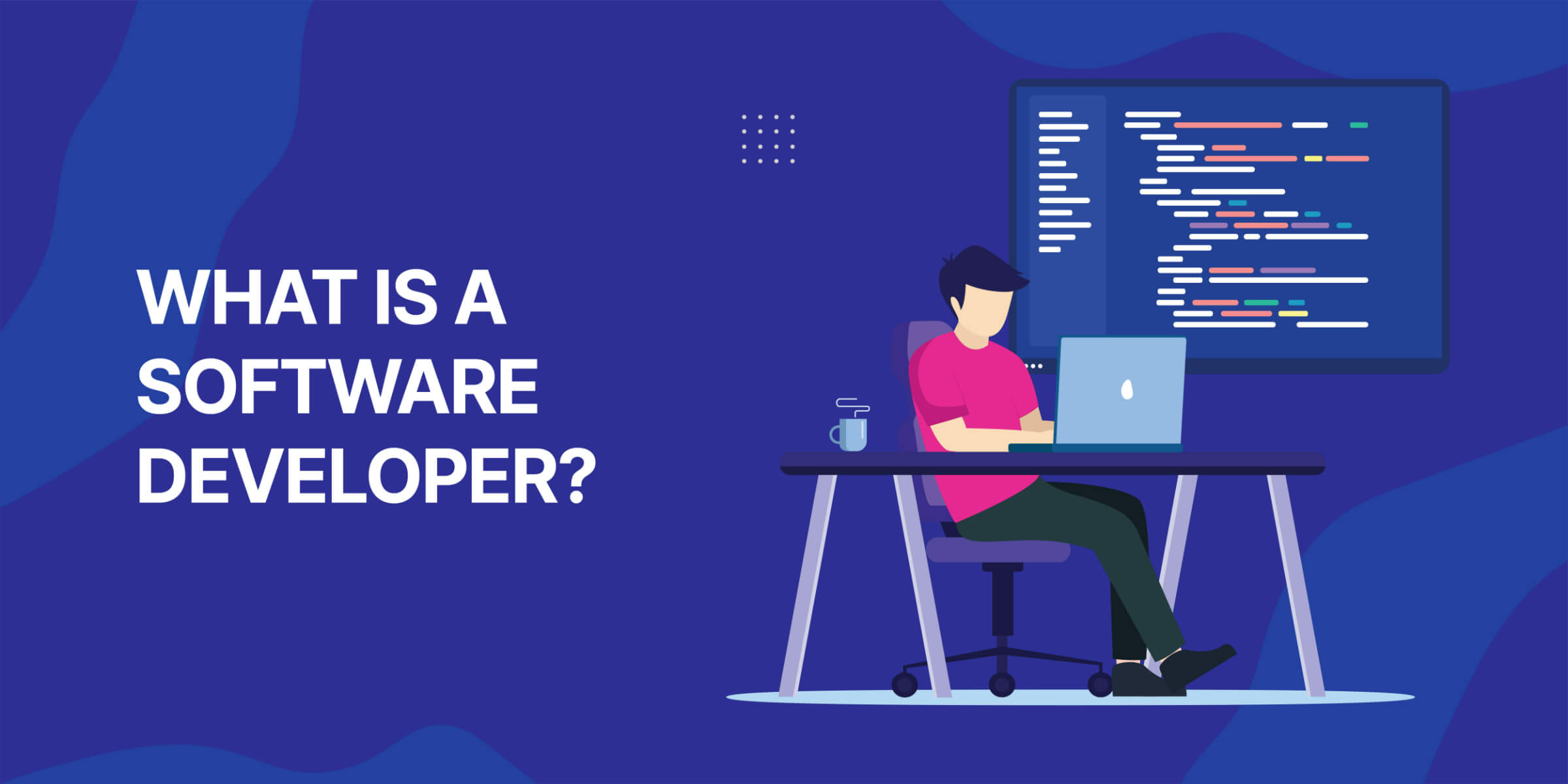

A software developer designs, creates, tests, and maintains software applications. They use programming languages like Java, Python, or C++ to develop software that meets user needs or solves problems. Developers work in various fields, including gaming, healthcare, finance, and technology.
What's the difference between a full-stack developer and software developer?
Software Developer Responsibilities
Common responsibilities of a software developer role include the following:
- Requirement Analysis: Developers analyze user needs and requirements to design software. They understand and clarify the required functionality, features, and constraints to develop an efficient and effective software solution.
- Software Design and Development: They design the software's architecture and user interface. Then, they write code to implement the design, ensuring it meets the specified requirements and adheres to industry standards.
- Testing and Debugging: Developers conduct thorough testing of the developed software to identify and rectify bugs and errors, ensuring the software functions as intended without any glitches.
- Software Maintenance and Improvement: They are responsible for updating and improving existing software, fixing bugs, and enhancing performance, maintaining the software’s relevance and efficiency.
- Collaboration and Communication: Developers work closely with other professionals such as designers, analysts, and project managers, communicating effectively to ensure the project's success and alignment with organizational goals.
- Documentation: Creating clear and comprehensive documentation is crucial. It includes writing technical specifications, user manuals, and comments within the code. Documentation ensures that others can understand and work with their software in the future.
Software Developer Skills & Education
The most important skills for a software developer include:
- Developer Tools: Software developers must understand developer environments (or tools) and how to use them to create and test programs. Seek a developer with expertise in several different platforms, especially for the specific function you need.
- Computing Trends: Top developers understand the modern computing trends relevant for the consumer markets. They should stay up-to-date with industry trends and regularly update their skills.
- Programming Languages: Developers must leverage various programming languages to build effective code. They must know several programming languages, including the most common ones and any relevant specialized ones.
- Mathematics and Analytical Thinking: Logical and linear thinking abilities are vital for successful software developers. They must be able to debug programs and resolve any development issues.
Software Developer Average Salary & Career Growth
In the United States, software developer salaries typically range from $70,000 to over $120,000 annually. The career path also offers promising growth because of the escalating demand for technological solutions across various industries. According to the Bureau of Labor and Statistics, software developer is the #1 job in the U.S. in 2023.
Developers can advance to senior or lead roles, transition into managerial positions, or specialize in areas like cybersecurity or data science. Taking any of those steps often substantially boosts salary increments. Continuous learning and adaptation to new technologies are pivotal for progression in this field.
Software Developer Example & Use Case
A company should hire a software developer when they need to execute a well-defined, smaller-scale project, such as developing a feature-rich, yet straightforward mobile app or a website.
For instance, imagine that a retail company wants to create a user-friendly e-commerce app. This project requires proficient coding for specific functionalities like product listings, user authentication, and payment processing. So, a software developer's focused skills in coding, debugging, and implementing predefined plans are ideas. They can efficiently handle these specific, detail-oriented tasks. They can transform the outlined requirements and designs into fully-functional software products.
What is the Difference Between Software Developers and Engineers?
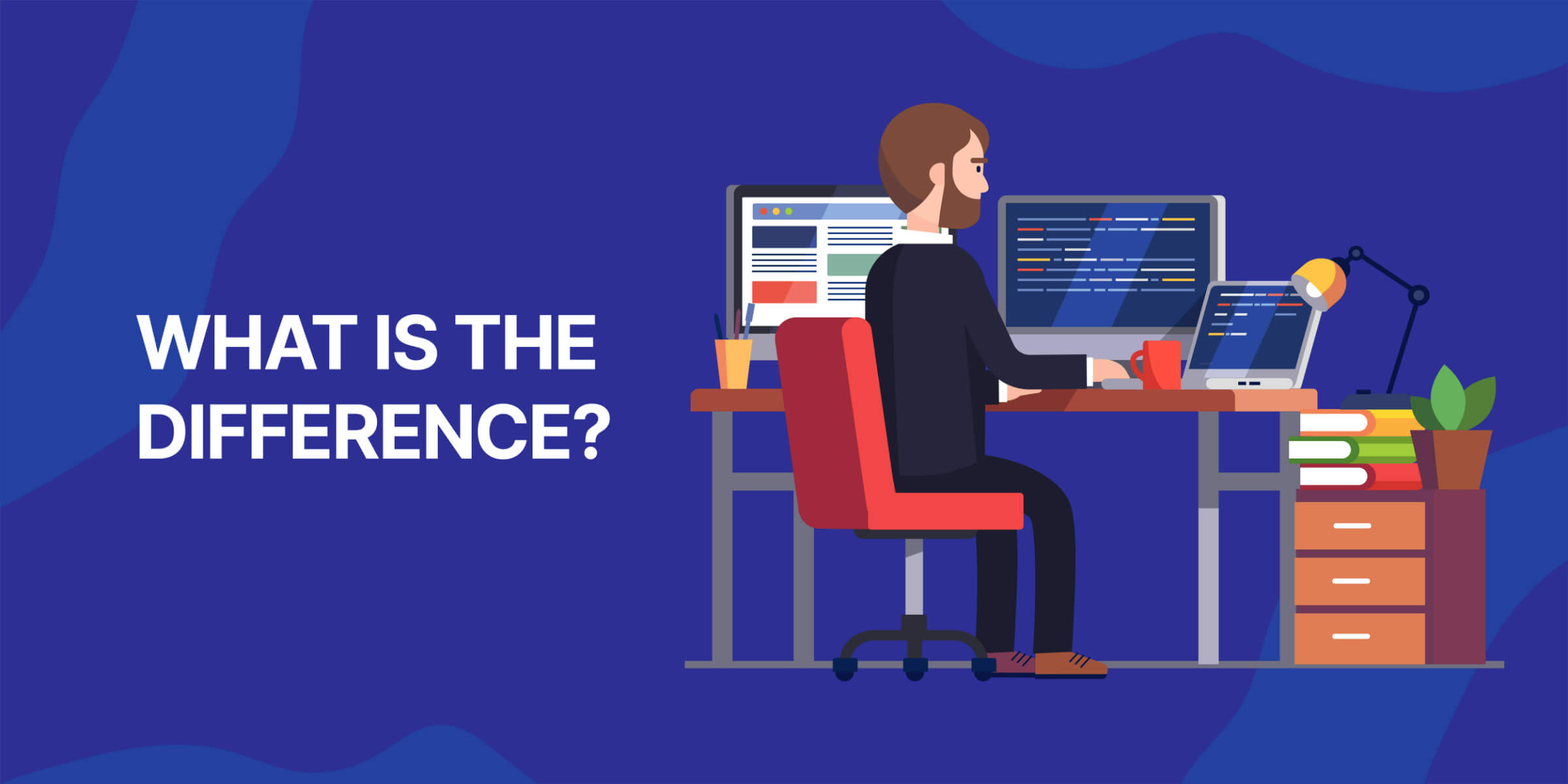

The easiest distinction to note is that software development is one part of software engineering. A software engineer focuses on the total picture of creating new software, while the developers focus on a certain software of the system.
Here’s a closer look at the key differences:
Software Engineer | Software Developer |
|
|---|---|---|
| What They Do | ||
| Skills | - Advanced project management skills - Comprehensive engineering principles - Software validation & verification | - Software Development Methodologies (Agile, Scrum) - Debugging & problem-solving |
| Career Path | - Progress to lead engineering roles that include mentorship & leadership | - Progress to lead developer or technical architect - Advanced roles are less collaborative than engineering ones |
| Average Salary | ||
| Work Role/ Culture |
Roles of a Software Developer vs. Software Engineer
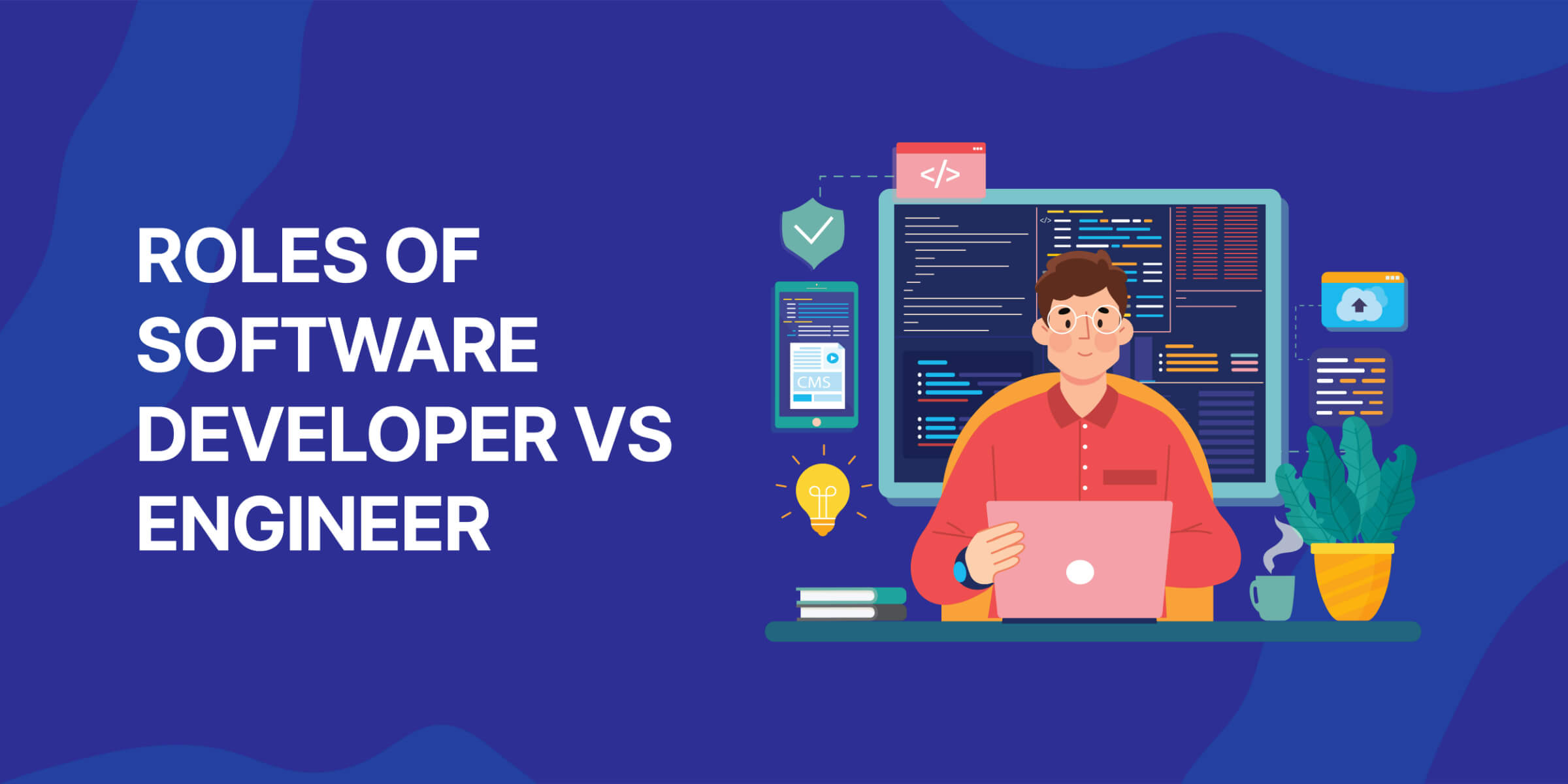

A software developer is primarily focused on writing code and developing software according to given specifications. They primarily focus on creating, testing, and debugging software applications.
A software engineer, on the other hand, is involved in the broader scope of software construction. They deal with system architecture, design, and analysis of user needs. They often take a lead role in project management and coordination.
When a project requires the construction of specific functionalities or application components, a software developer is essential. They concentrate on the detailed aspects of programming and implementation. Examples include:
- Developing a website
- Building a mobile app
- Writing specific pieces of code to add features to existing software platforms
- Bug fixes and updates in existing software, including adding new features
Conversely, when a project involves developing complex systems or requires a holistic approach to software construction, then a software engineer is the right choice. They leverage engineering principles to address the comprehensive needs of software creation and integration.
Some project examples include:
- System architecture design, including the high-level structure of a software system
- Developing a software solution to address a complex problem or need
- Software development project management that requires coordinating with various stakeholders, managing resources, and meeting time and budget constraints
- Enterprise software development to meet the comprehensive needs of an organization
In many projects, the collaboration of both roles is crucial. Developers bring detailed coding expertise, whereas engineers ensure the overall systemic and architectural coherence. The balance and delineation between these roles may vary depending on organizational structures and project demands.
Want to ensure Agile software development? Check out our guide on Scrum Master vs Agile Coach.
The Best Place to Find a Software Engineer or Software Developer
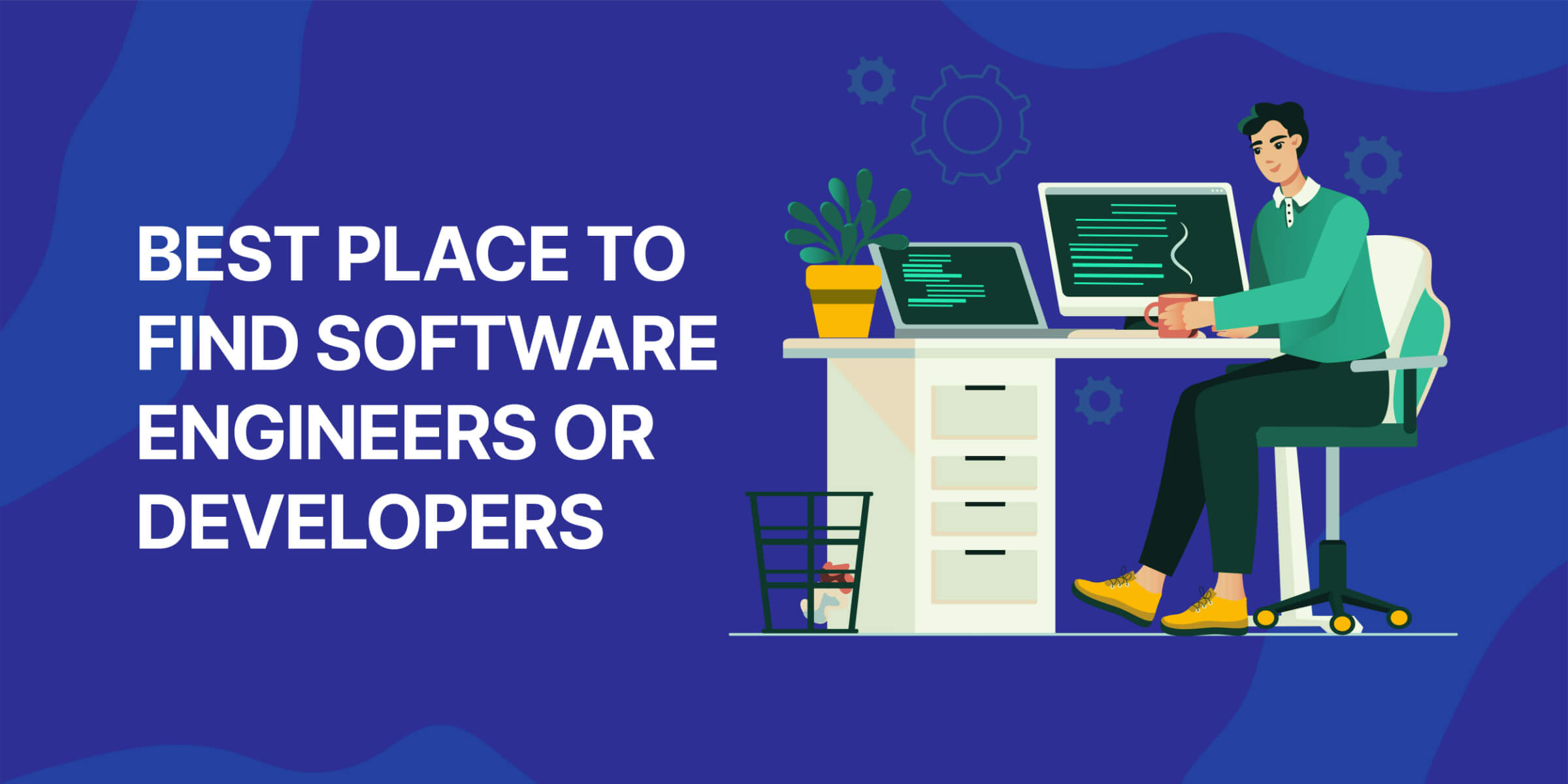

Toptal is among the best websites for hiring developers and engineers, due to its rigorous selection process. It admits only the top 3% of applicants.
This ensures access to a pool of highly skilled, versatile, and reliable professionals, capable of handling diverse projects. Choose a software developer or engineer on Toptal to achieve your technological goals efficiently.
Why We Like Toptal
- Top Talent: Get access to elite, pre-screened candidates (only accepts the top 3%)
- Flexibility: Ideal for long-term or shorter-term specialty projects
- 14-Day Risk-Free Trial: Only get billed if you're satisfied
Frequently Asked Questions
Is a developer the same as a software engineer?
No, a software developer is not the same as an engineer. Software engineers have a more extensive role that requires a border, more systematic approach to software development. The developers focus on the construction and coding of software development.
Can a software developer become a software engineer?
Yes, it’s possible for a software developer to become an engineer, especially if they want to be in a more leadership-based role. It may require additional education and skill development, as many software engineers have a bachelor’s or master’s degree that developers may not.
Is it harder to be a software engineer or developer?
Both positions require technical abilities, but it is harder to be a software engineer because this role has a larger scope. Software engineers often have more advanced technical skills because they are in charge of the entire program.
Does a software engineer or developer make more money?
Oftentimes, software engineers earn more than developers, but it ultimately depends on their employer, skills, experience, and performance.














